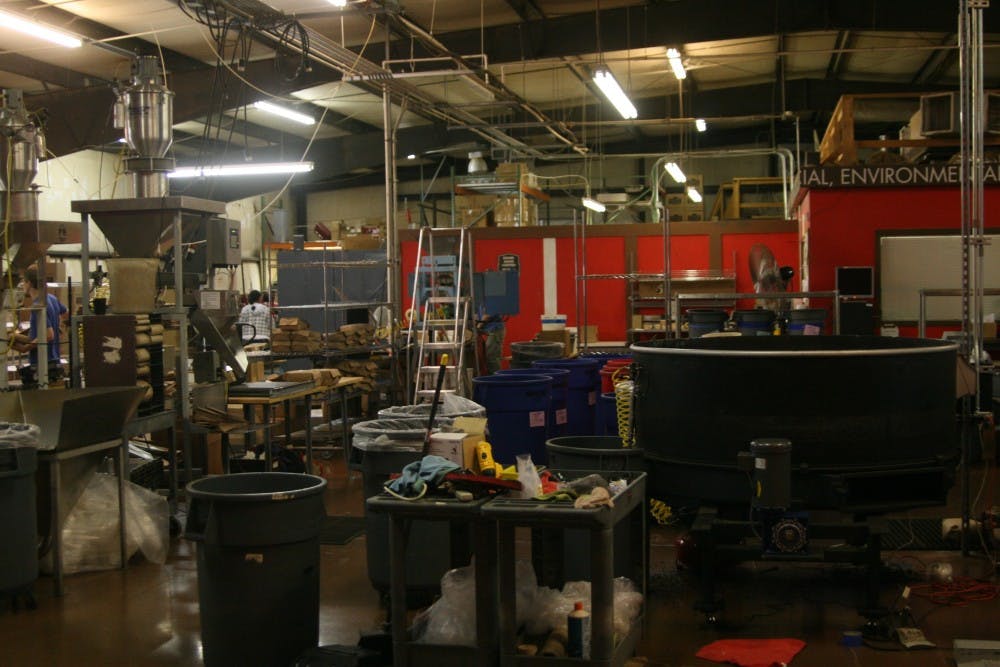Stroll into Durham’s Counter Culture Coffee and it isn’t immediately clear that you’ve just walked into the headquarters of an influential international company. In the cupping room — where Friday morning coffee “cuppings,” or tastings, take place — you’ll see smooth, glistening espresso machines and rows of stools.
But then you reach the roasting area, where huge machines spew the fragrant, soil-brown beans like something out of Willy Wonka’s factory. And it hits you: this isn’t your grandmother’s Folgers, and Counter Culture wouldn’t have it any other way.
“Specialty coffee makes up a very small percentage of the global coffee trade,” said Mark Overbay, marketing and communications manager at Counter Culture. “Coffee is the second-most traded commodity after oil in the world, which most people don’t realize. The coffee trade is huge, tremendous, and we and other roasters like us operate a very small corner of that industry.”
This focus on specialty coffees has lead the local business to establish outposts throughout the U.S. and abroad since its establishment in 1995, with training centers in Asheville, Charlotte, New York, Atlanta, Washington, D.C., and Philadelphia. The company’s overseas partnerships have required lots of research and legwork to establish.
“Our model is unique, in that we cultivate direct relationships with coffee farmers throughout the world,” Overbay said. “Good coffee really grows in pretty small areas in the context of the global coffee trade. Those places are in East Africa, central and south America, the mountains of Indonesia, Southeast Asia and the Pacific islands.”
Partnerships with farmers have often resulted from chance interactions with other growers and coffee lovers.
“In one case, a customer at a cafe in Washington, D.C., was Ethiopian and met one of our employees when they were in D.C., and this man said, ‘Oh, my cousin in Ethiopia is an amazing coffee farmer. You should really look him up,’” Overbay said. “We did, and his coffee was astoundingly good, so we bought it. There are a lot of stories like that.”
As the first certified organic coffee roasters in North Carolina, Counter Culture holds its partnerships with growers, restaurants and cafes to a high — and sustainable — standard.
“We love food, and we treat coffee like a food. It’s a precious agricultural product, and we try to work with chefs and cafe owners that feel the same way, that are just as passionate about their ingredients as we are about ours,” Overbay said.
“I think that coffee is often an afterthought on restaurant menus, and we’ve helped to change that. Coffee is, for many people, the last impression that you leave a meal with. You get coffee after a meal or you have coffee with dessert, coffee with brunch — it should never be an afterthought.”



